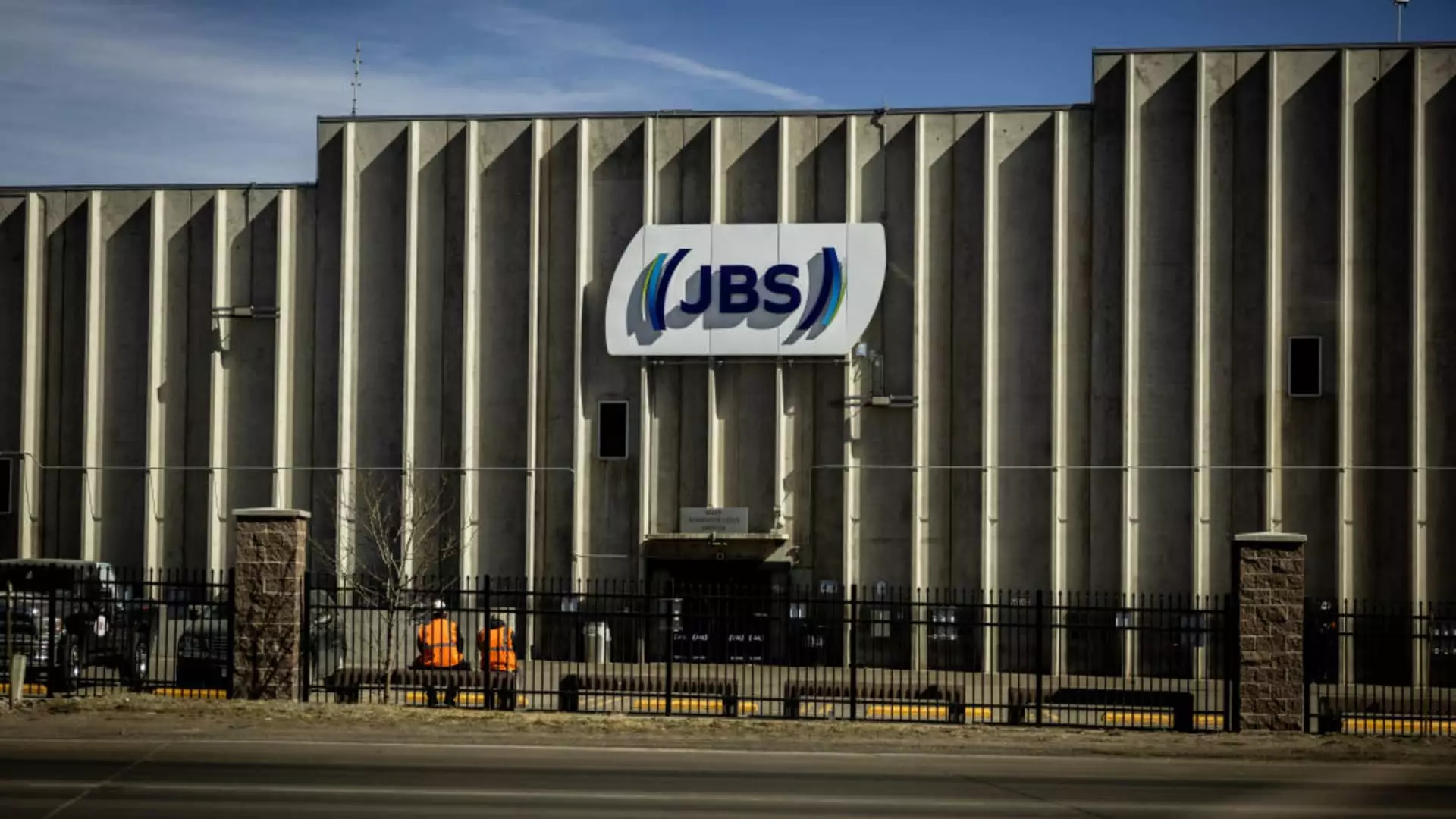In an ambitious move that confirmed its stature as a heavyweight in the global meat industry, Brazilian meat titan JBS made its long-awaited debut on the New York Stock Exchange, opening at $13.65 per share. With an initial valuation close to $30 billion, JBS now firmly positions itself above competitors such as Tyson Foods, which boasts a market cap just shy of $20 billion. But before we bypass the glitter of financial success, it’s crucial to examine the disquieting shadows lurking in JBS’s expansive history, which, for many observers, dampens the thrill of this significant milestone.
A Legacy Stained by Scandals
While JBS might herald its remarkable growth since inception over seven decades ago—transforming into the largest meatpacking company in the world—the trail of scandals and corruption allegations it has left in its wake is impossible to ignore. Among the most noteworthy was the infamous bribery scandal that captured headlines in 2017. JBS and its key executives faced investigations following revelations of illegal financial practices, leading the parent company, J&F Investimentos, to cough up a staggering $3.2 billion in fines. It’s worth noting that the Batistas—JBS’s founders—managed to evade significant jail time, raising serious ethical dilemmas about accountability in corporate governance.
Such actions question the integrity of the overarching meat market and, by extension, public trust in the global food supply chain—a glaring issue considering the essential nature of the products JBS provides. Can we genuinely endorse the expansion of a company that has, time and again, placed profit over principle?
Political Connections and Corporate Influence
The insidious intertwining of politics and corporate ambitions is also highlighted in JBS’s controversial financial interactions. Following the 2016 US presidential election, Pilgrim’s Pride—JBS’s subsidiary—made headlines for its eye-popping $5 million donation to Donald Trump’s inauguration committee. Such contributions invoke not just questions about political favoritism but also broader ethical concerns about corporate influence on governance. In Heraclitus’ words, “Character is destiny;” the character of JBS, at this juncture, can be viewed as fraught with questionable motives.
Lawmakers across the political spectrum have expressed apprehension regarding JBS’s listing, given the company’s tumultuous history and the well-documented politically charged atmosphere it exists within. Despite bipartisan calls for scrutiny, the SEC approved JBS’s US listing request, creating yet another reflection of the complex dance between regulatory bodies and powerful entities operating in the market. How can regulators justify support for a company that has repeatedly faced serious allegations of corrupt practices?
Environmental Issues: A Ticking Time Bomb
The allegations against JBS extend beyond corruption, spanning into environmental recklessness that endangers protected lands in the Amazon. In October, the Brazilian government levied fines against the corporation for purchasing cattle purportedly sourced from illegally deforested areas. This not only portrays JBS as an organization willing to exploit environmental regulations as long as profits soar, but it also strikes a nerve among advocates striving to protect our planet’s fragile ecosystems. Such actions imply a blatant disregard for sustainable practices and underscore the urgency of reassessing large corporations’ roles in tackling climate change.
The combination of corruption, political machinations, and environmental degradation brings to the forefront fundamental questions about the ethical implications of corporate power. As JBS continues to expand its global footprint, what are the potential costs to society?
Reflecting on the Future
In light of JBS’s market debut, investors must grapple with the dilemma of supporting a company with such a tainted past. While we celebrate innovation and growth, one must also reckon with the moral fabric upon which such accomplishments stand. JBS’s rise compels us to engage in critical discourse about corporate ethics and responsibility, particularly in industries so integral to public welfare.
Ultimately, JBS epitomizes the complexities of modern capitalism, where growth often comes at a heavy moral price. For those who care deeply about the intersection of business and ethics, this moment calls for vigilance and continued scrutiny. The battle isn’t merely about meat production; it’s about the core values that define our society.


Leave a Reply